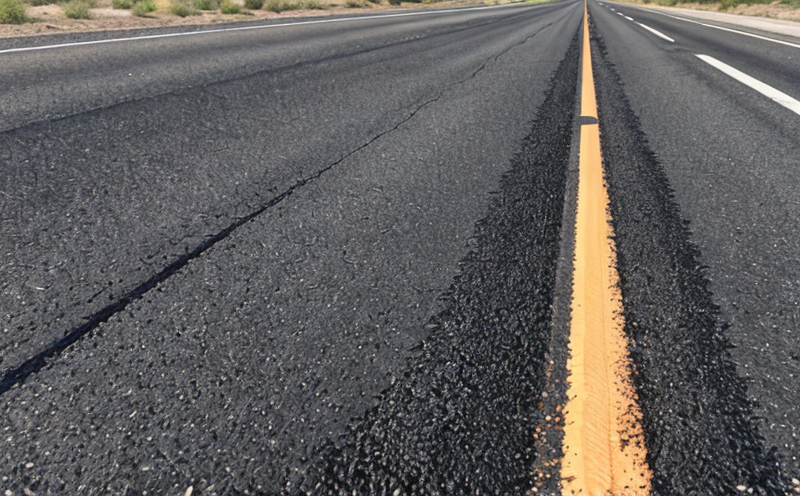EN 12697 Moisture Sensitivity Testing of Asphalt
The EN 12697 standard provides a method for determining the moisture sensitivity of asphalt mixtures. This test is crucial in ensuring that the materials used in paving and road construction are resilient to water-induced deterioration, which can lead to premature failure or damage.
The process involves subjecting samples to controlled humidity conditions followed by drying cycles. During these cycles, changes in mass are monitored as an indicator of moisture sensitivity. This test is particularly important for quality managers and compliance officers who need to ensure that the materials meet the required standards before use on construction sites.
Understanding the moisture sensitivity of asphalt mixtures helps in optimizing the design and production processes. For R&D engineers, this test provides insights into the effect of moisture content on the physical properties of the mixture. It also assists procurement teams in selecting suppliers who meet stringent quality criteria.
The testing procedure is outlined in detail within EN 12697. Samples are prepared according to specified dimensions and weight. These samples undergo a conditioning process that involves exposure to humidity followed by drying. The mass change during this cycle indicates the moisture sensitivity of the mixture.
Instrumentation used for this test typically includes precise scales capable of measuring small increments in mass. Environmental chambers are also essential to control the humidity and temperature conditions accurately. Compliance officers must ensure that these instruments are calibrated regularly to maintain accuracy.
The acceptance criteria for EN 12697 moisture sensitivity testing specify a maximum allowable change in mass after exposure and drying cycles. This value varies depending on the type of asphalt mixture being tested. For instance, high-performance concrete pavements might have stricter limits than conventional roads.
Understanding the results from this test is vital for predicting the long-term performance of roads and pavements. Engineers can use these insights to design more durable structures that withstand environmental stresses better.
Applied Standards
| Standard Name | Description |
|---|---|
| EN 12697-1 | General requirements for moisture sensitivity testing of asphalt mixtures. |
| ASTM D5038 | Standard test methods for measuring the moisture susceptibility of hot-mix asphalt aggregates. |
The use of multiple standards allows for comprehensive evaluation, ensuring that all aspects of moisture sensitivity are considered. This approach enhances the reliability and accuracy of the testing process.
Industry Applications
- Quality Assurance in Asphalt Production
- R&D for Durability Enhancement
- Supplier Evaluation and Selection
- Construction Site Monitoring
Use Cases and Application Examples
| Application Case | Description |
|---|---|
| Pavement Maintenance Programs | Determining the need for repairs or replacements based on moisture sensitivity. |
| New Highway Construction Projects | Ensuring that new materials meet durability standards before use. |
| Application Case | Description |
|---|---|
| Retrofitting Existing Pavements | Evaluating the impact of environmental factors on existing structures. |
| Material Selection for Special Projects | Selecting materials that are less susceptible to moisture damage in challenging environments. |





